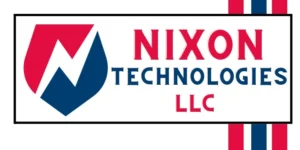Robotic process automation
Streamlining Operations with Automation
In the contemporary landscape of business operations, Robotic Process Automation (RPA) stands as a transformative force, reshaping traditional workflows and ushering in a new era of efficiency and innovation. Through the deployment of software robots, commonly referred to as “bots,” RPA automates repetitive tasks that were once the domain of human employees, liberating valuable human capital to engage in more strategic and value-driven endeavors. This shift not only enhances productivity but also cultivates an environment conducive to agile adaptation and competitive advantage. Our mission is to equip organizations with state-of-the-art solutions that elevate their operational efficiency and drive success.


The Progression of RPA
The evolutionary trajectory of RPA is marked by a progression from rudimentary, rule-based automation to sophisticated, intelligent solutions. Initially conceived to handle mundane tasks such as data entry, form filling, and invoice processing, RPA has evolved in tandem with advancements in artificial intelligence (AI) and machine learning (ML). Modern RPA platforms leverage these technologies to imbue bots with cognitive capabilities, enabling them to analyze unstructured data, decipher natural language, and execute informed decisions. This evolution empowers organizations to automate a broader spectrum of processes spanning diverse departments, transcending the confines of routine tasks and embracing complex operational challenges with agility and precision.
The Impact of RPA on Business Operations
The widespread adoption of RPA has catalyzed a paradigm shift in business operations, fundamentally altering the modus operandi of organizations across industries. By automating labour-intensive and time-consuming tasks, RPA streamlines workflows amplifies productivity, and cultivates operational excellence. Furthermore, the implementation of RPA serves as a bulwark against human error, ensuring meticulous adherence to regulatory standards and mitigating the potential for costly oversights and penalties. Perhaps most significantly, by liberating human resources from the shackles of monotonous tasks, RPA unlocks the latent potential for innovation and growth, empowering organizations to redirect talent toward strategic initiatives that drive sustained success in an ever-evolving marketplace.


RPA Solutions for Today's Businesses
Welcome to Nixon Technologies LLC, where we lead the charge in the RPA revolution. Our mission is to equip organizations with state-of-the-art solutions that elevate their operational efficiency and drive success. At Nixon, we pride ourselves on our commitment to innovation and customer satisfaction. We provide a diverse range of RPA products and services customized to suit the individual requirements of each client. Whether it’s streamlining processes, designing efficient workflows, or providing ongoing support, we’re here to guide you through every stage of your automation journey.
The Role of AI and ML in Advancing RPA
Artificial intelligence (AI) and machine learning (ML) play a crucial role in advancing RPA capabilities. By leveraging AI and ML algorithms, RPA bots can learn from experience, adapt to new scenarios, and continuously improve their performance. This enables organizations to automate more complex processes that involve unstructured data and decision-making, further enhancing operational efficiency and agility.
RPA's Contribution to Digital Transformation
RPA plays a key role in driving digital transformation initiatives across industries. By automating manual tasks and integrating disparate systems, RPA enables organizations to digitize their processes, improve collaboration, and enhance customer experiences. Moreover, RPA facilitates the adoption of emerging technologies such as cloud computing, big data analytics, and the Internet of Things (IoT), enabling organizations to stay competitive in today’s rapidly evolving business landscape.
The Future of RPA Towards Intelligent Automation
The future of RPA lies in intelligent automation, where bots not only automate repetitive tasks but also possess cognitive capabilities to perform more complex functions. As AI technologies continue to advance, RPA bots will become smarter, more adaptive, and capable of handling a broader range of tasks. This will enable organizations to achieve higher levels of automation, efficiency, and innovation, driving new opportunities for growth and differentiation.
Overcoming Challenges and Maximizing RPA Benefits
While RPA offers numerous benefits, organizations must overcome certain challenges to maximize its potential. These include concerns related to data security, process complexity, and organizational resistance to change. However, by addressing these challenges proactively and adopting a strategic approach to RPA implementation, organizations can unlock significant value and gain a competitive edge in today’s digital economy.
